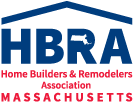The Executive Office of Housing and Livable Communities (EOHLC) recently issued revisions to the guidelines that determine if an MBTA community is in compliance with the multi-family zoning mandate of the Zoning Act (G.L. c. 40A, § 3A). The revised Compliance Guidelines now allow those communities subject to the law the option to require ground-floor commercial space in multi-family buildings in up to 25% of their multi-family districts. The change does not reduce the total unit capacity required, however.
EOHLC Secretary Ed Augustus said this change was made “[i]n response to feedback from municipal leaders in several MBTA Communities.” His office will now take into consideration the existence and impact of “mixed-use” zoning that requires ground floor commercial uses in buildings that also allow residential units as of right on other floors. Augustus said MBTA communities always could allow ground floor commercial in proposed multi-family zoning districts, but residential units in properties that required commercial space previously did not count for compliance calculations.
There are 177 cities and towns that are considered “MBTA communities” and are subject to the law’s requirements because they either host MBTA service or are adjacent to a town that does. 176 of those municipalities are in currently in compliance, according to the Executive Office of Housing and Livable Communities. The one non-compliant town is Holden, which is being sued by the Central Massachusetts Housing Alliance for its refusal to comply with the law.
Towns that don’t comply with the law are not eligible for three state grant programs: MassWorks, the Housing Choice Initiative and the Local Capital Projects Fund. The revised guidelines will now consider compliance with the MBTA community zoning law when making funding decisions for 13 additional programs. Those grant programs are: community planning grants, Massachusetts Downtown Initiative, Urban Agenda, Rural and Small-Town Development Fund, Brownfields Redevelopment Fund, Site Readiness Program, Underutilized Properties Program, Collaborative Workspace Program, Real Estate Services Technical Assistance, Commonwealth Places Programs, land use planning grants, local acquisitions for natural diversity grants, and Municipal Vulnerability Preparedness Planning grants.
The purpose of the law is to encourage the production of multi-family housing by requiring MBTA communities to adopt zoning districts where multi-family housing is allowed as of right. The Home Builders and Remodelers Association of Massachusetts believes the MBTA multi-family zoning mandate provides an important opportunity for its members to develop needed multi-family housing.
Information on the MBTA Multi-family zoning mandate, including a list of the communities subject to the law, can be found at https://www.mass.gov/info-details/multi-family-zoning-requirement-for-mbta-communities.
A summary of the revisions to the Compliance Guidelines can be found here.
The Compliance Guidelines with the revisions redlined can be found here.

